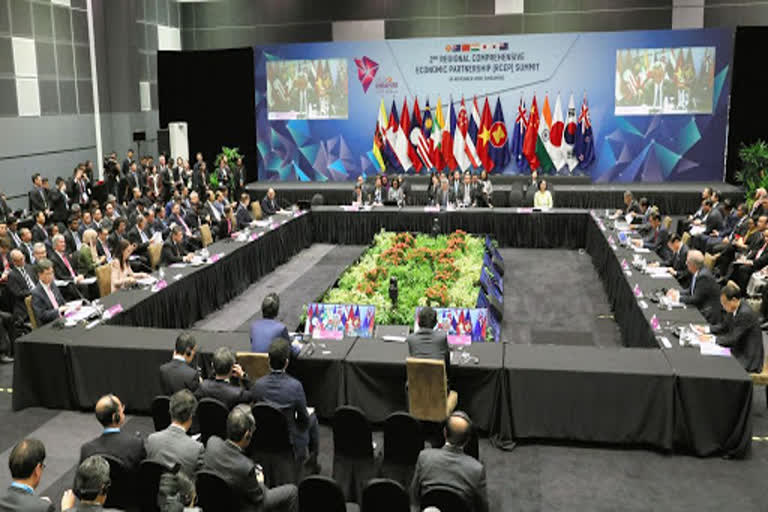New Delhi: A ten-day work programme has been prepared by the 16-nation RCEP grouping, which is negotiating a mega free trade agreement, to sort out pending 14 issues by October 22 that are hindering the conclusion of talks, sources said.
These 14 points, which are yet to be resolved, were shared on October 12 during the ninth ministerial meet in Bangkok.
Among these points, six are specific to India and that includes data related matters under e-commerce; auto-trigger concept which can be used to stop sudden surge in imports; change in base year from 2014 to 2019; and tariff differential under which India has to limit the number of goods over which it would offer different duty rates to the member countries.
The other issues include a ratchet mechanism, under which a nation can not go back on the commitments made under the agreement.
The RCEP (Regional Comprehensive Economic Partnership) agreement is being negotiated among 10 ASEAN members (Brunei, Cambodia, Indonesia, Laos, Malaysia, Myanmar, the Philippines, Singapore, Thailand, and Vietnam) and their six trade partners -- Australia, China, India, Japan, Korea and New Zealand.
The developments assumed significance as some sections of Indian industry have raised concerns over the presence of China in the grouping. Various sectors, including dairy, metals, electronics, and chemicals, have urged the government to not agree on duty cuts in these segments.
The agreement is expected to be concluded by November and signed in 2020.
Any of the issues that could not be resolved will be taken up at the leaders' summit, scheduled for November in Bangkok, the sources said.
They said India has sought change in the base year for implementation of duty cuts under the pact from the proposed 2014 to 2019 as it has raised customs duties on over 3,500 products since 2014.
